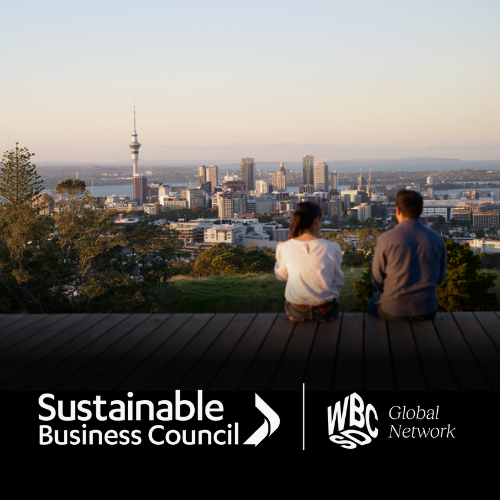Why Millennials Might Save the Planet
By 2025, 75% of the global workforce will be millennials, the
generation born between 1982 and 2000 – who may turn out to be our environmental
and social saviours.
By 2025, 75% of the global workforce will be millennials, the
generation born between 1982 and 2000 – who may turn out to be our environmental
and social saviours.
The fact that millennials are powerful force in driving sustainability
was a highlight at the recent Sustainable Brands conference in Sydney which I
attended.
The data shows that millennials, while also tagged ‘selfie-obsessed’,
‘entitled’ and ‘self-indulgent’, are significantly more engaged with
sustainability and social justice than previous generations.
This is not surprising given they’re generally highly
educated, they’ve had strong awareness of social and environmental issues from
an early age and have the shadow of climate change bearing down on their
futures.
They’re also more financially disadvantaged than previous
generations, carrying student debt and facing real challenges affording a home.
A
Deloitte Global Study identifies that they are also hugely ambitious and
seek purpose in life beyond money. So, that influences the brands they choose
to purchase and the brands they work for.
Social media has also given millennials a voice and that
voice strongly connects to being part of the solution not the problem – a force
that is fundamental to the latest evolution of sustainability where purpose
drives business.
And we’re not talking about businesses that simply have a corporate
‘purpose’ statement. This is about
businesses that stand for something; that rather than being a company with a
mission, purpose businesses are a mission with a company.
Purpose businesses are coming to life in the United States. An
early pioneer is globally successful Patagonia, the outdoor clothing company
started by a team of young outdoor enthusiasts who wanted to ”build the best
product, cause no unnecessary harm, use business to inspire and implement
solutions to the environmental crisis”.
In New Zealand, we have a few trailblazers such as Eco-store
and Z Energy, showing us how prioritising purpose leads to growth.
The data backs the model. According to the HBR 2015 Business
Case Purpose Survey, during the GFC purpose businesses continued to grow.
Whilst the 2015 Imperative and NYU Workforce Index shows that purpose also
increases employee productivity, engagement and loyalty with 20% higher
retention rates than non-purpose firms, workers 50% more likely to be in top
positions and 47% higher net promoters of brand.
Purpose-driven businesses also connect better with their
customers – particularly with millennials. Take Dutch company, MUD Jeans, the
world’s first ‘circular’ fashion brand targeting its conscious millennial
consumers through not only producing organic certified cotton jeans but empowering
them to participate in recycling this precious resource, by offering its Lease
a Jeans concept.
It’s an experience that delights and engages. Indeed, MUD
Jeans runs weekly webinars with its millennial market who are queuing to share
ideas and stories, to be part of the conversation and wider community of
change.
This is an exemplar of the ‘circular economy’, an industry forecast
to be worth $4.5 trillion in the next 15 years and which many millennials
embrace. The circular economy decouples growth from natural resources and turns
the focus to generating revenue from waste and innovative, customer-focused products
and services.
In New Zealand, businesses find a dilemma in all of
this. Consumers (including millennials)
tell us through surveys that they care, and that they will pay more for
sustainable products and services. But
their actions tell a different story. And
what we learn is that consumers don’t want to sacrifice functionality to make a
sustainable choice. And many can’t
afford to pay more for the sustainable option.
Certainly, conscious consumption is not yet part of the
social fibre in New Zealand, partly because we still don’t see the negative
impacts of our consumption behaviours and because making sustainable choices is
complicated. Consumers need brands to help them do that.
This is the conundrum for business. However, consumer demand
for genuinely sustainable brands is soaring and driving growth. In the United
States for example, organic beef represents just 0.4% of the retail beef
market, but from 2011-2014 retail growth exceeded 300% with suppliers unable to
meet continued soaring demand, according to IRI market research.
Likewise, for S&P Global 100 companies, sustainable
product revenue stream grew at six times the rate of overall company results,
according the 2015 Driving Revenue Growth Through Sustainable Products Report.
Suffice it to say, our hyper-connected, media savvy and
always-on consumers living in a challenging world are demanding better from
their brands. Any business that doesn’t engage is vulnerable to being left behind.
And what advice was given at the Sustainable Brands
conference, about how to respond to this dilemma?
- Bring organisational sustainability champions and the marketing team together to enable better story-telling about ‘purpose’ and sustainability activities.
- Give consumers what they want before they know they want it. Great brands can create demand for new products and services – there are plentiful examples of this level of innovation from Apple through to Uber.
- Be clear on your purpose, and the policies and activities you will need to adopt to truly live that purpose – Patagonia ran an advertising campaign telling customers not to buy their jacket as part of a campaign to address unsustainable consumption.
This article featured in the Sunday Star Times on 31 July 2016
Contact:
Phone:
Email:

